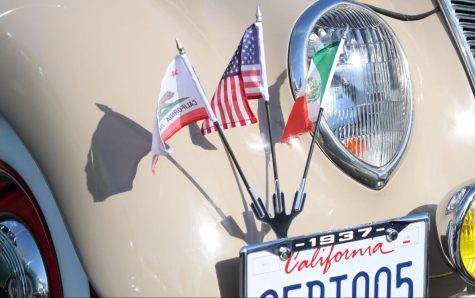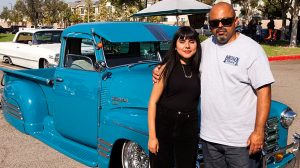Finding security in my Chicana identity
March 13, 2023
Growing up, I always felt out of place. I knew on paper what my ethnicity was, but I didn’t feel like I had permission to engage with my own culture. As a Mexican-American girl, I constantly had one question on my mind: “Where the hell do I fit in?”
Even though California is an extremely liberal state, I’ve had to deal with people’s racism my whole life. I was born in Fullerton. My parents were both born and raised in Fullerton, and even attended Fullerton Union High School. Regardless, my most impactful experiences with racism have been at school.
Due to a lisp and my shy personality, my elementary school teachers and peers believed I didn’t speak English. Yet, English is my first language. I don’t speak any Spanish.
When I was 7, my mom, my sister, and I moved to Tennessee to live with my step-dad and his three sons. If anything, that made my relationship with my identity even more confusing. At my school in Tennessee, there were very few Mexican students and even fewer Chicanas. Me and the two other Mexican students became really close.
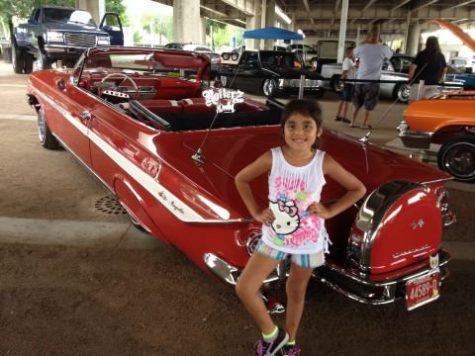
To most of my friends, I was their token Mexican. Even so, I didn’t live up to their expectations. I don’t speak Spanish, I like very few Mexican dishes, and I’m progressively getting less and less tan.
Moving back to California didn’t make it easier. The lack of diversity in my Tennessee elementary school made my first day at Nicolas Junior High a culture shock.
Yet, I quickly realized I still didn’t fit in. But this time it was because I wasn’t Mexican enough. I was– and still am– seen as the white-washed “fake beaner” of every friend group. When I’d mention not liking some Mexican foods, kids around me would be in utter shock. I’ve heard “How are you a beaner if you don’t like beans?” multiple times from multiple people.
My former best friend once told me that I benefit from my skin color, even though I wasn’t any lighter than her. She even swore that I wasn’t Mexican because I didn’t speak Spanish. Yet, a few months prior, she had won a Speech and Debate competition for a piece about how there isn’t one way to be Mexican. She had even said the words “Mexicans are still Mexican even if they can’t speak Spanish.”
The entire time I was struggling with my identity, I was also adjusting to a new relationship with my step-dad, Beto Millan. At the time, he was just my mom’s boyfriend. Even though I knew he was supposed to be my father-figure, I just couldn’t bring myself to call him “dad.”
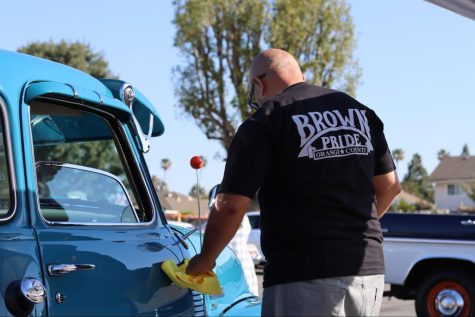
Since age 12, my dad has been involved with gangs. He didn’t want to be in a gang but needed to be to protect himself. Yet, being in a gang prevented him from doing what he loves. Lowriding has his heart. Unfortunately, at the time he couldn’t go to car shows for fear of other gangs showing up.
Yet, over the years gang activity calmed down. After joining our family, he no longer needed to hide himself. He didn’t need to fear being in the wrong place at the wrong time.
Back in California as a family and no longer fearing the dangers of gang life, my dad took us all to his first car show in Santa Ana. It was a dream come true for him, feeling safe while doing the thing he loves with the people he loves.
After watching my dad finally achieve his dream, I opened up to him about how out of place I felt. I was surprised to hear him say that he felt the same way growing up. He was too Mexican for Fullerton, but too Chicano for Mexico.
At that car show, we finally felt like we had a place. There’s no hate, no judgment, and nobody tells you that you’re too Mexican or not Mexican enough. Everyone shares the same passion for their cars. It was the first thing that made me feel comfortable in my Chicana identity.
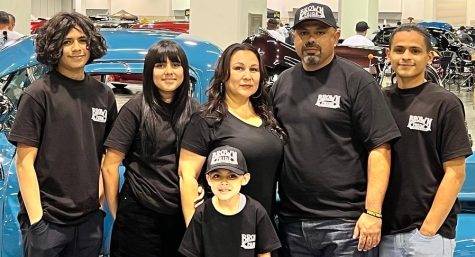
My dad spent eight years building his truck. He was so nervous when he entered it into competition, fearing he might lose in front of his family. What he didn’t understand was that we were all proud of him regardless of the competition. My younger brother even snuck off to buy him a model figure that looked similar to his truck.
We all wore matching shirts with the name of the car club on it, “Brown Pride.” We watched joyfully as other attendees stopped to admire and take photos of his truck. My dad does not like having his photo taken. But when he won second place for his 1949 Chevy pickup truck, he proudly smiled and posed with his trophy.
It’s the moments like these when I truly fit in. No one is better than anyone else, and no one is not enough. Everyone gets to be who they are and be proud.
The misconception that a Mexican lowrider-owner is automatically a gang member is harmful. My mom says that Mexicans don’t care about the stereotypes people have, and even take pride in the behavior that people misconstrue. While that is true, people can still negatively affect the Chicano community by pushing this false narrative.
Mexican people are disproportionately approached by law enforcement when seen in certain types of cars. Lowriding is not hurting anyone, and the goal of “Brown Pride” isn’t to make anyone feel less than. It is more so to lift Chicanos up and encourage us to embrace our culture.
